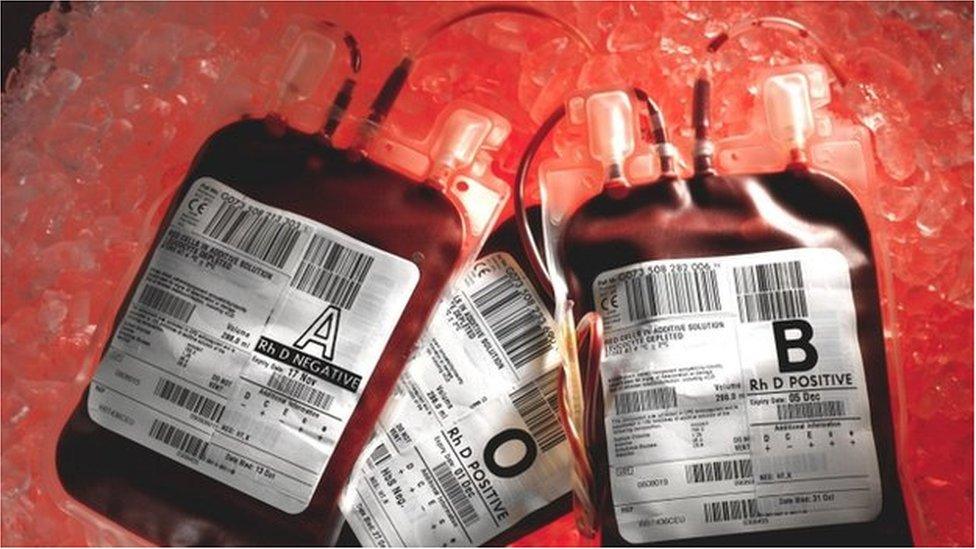Stoke-on-Trent men with coronavirus symptoms urged to give plasma
- Published
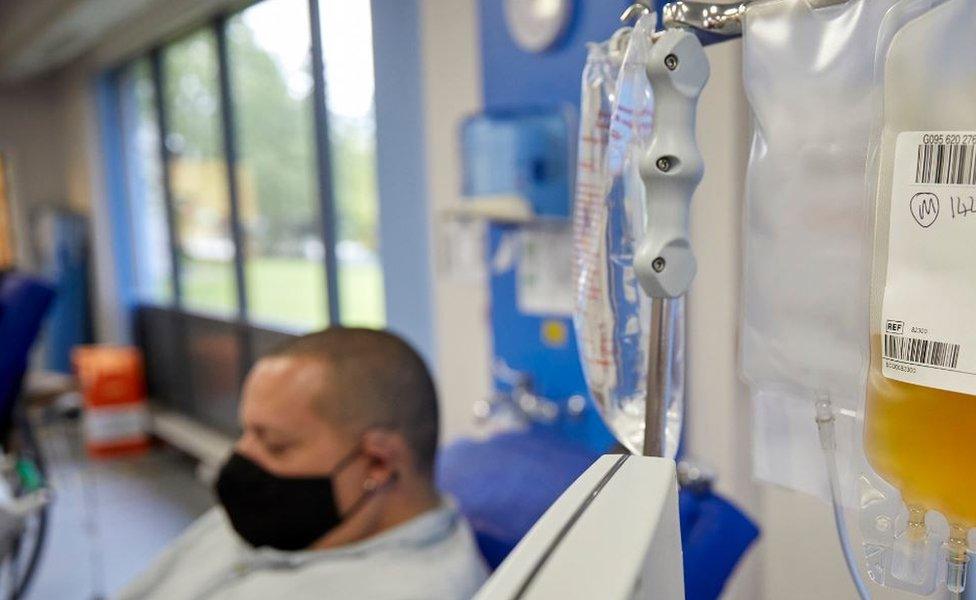
Convalescent plasma is being collected at more than 20 sites in England and several pop-up donor centres
Men who have had coronavirus symptoms are being urged to give blood plasma due to shortage of male donors in Stoke-on-Trent.
More than 2,440 people in the city had volunteered to donate after recovering from Covid-19, but only 33% were male, despite men being "more valuable donors", the NHS said.
Blood plasma from people who have recovered can potentially save lives.
It is being transfused into members of the public as part of a trial.
Preliminary results were expected this year and plasma was being collected and stored at a large scale, so if trials showed "patient benefit", there were significant stocks ready for immediate use, NHS Blood and Transplant (NHSBT) said.
A man booked in to donate for the first time was three times more likely to give a high antibody unit of plasma than a woman booked in for the first occasion, it added.
Neutralising antibodies could stop the virus spreading and save lives. Men generally produce more antibodies, because on average they are more seriously affected by the virus.
Men also generally have "larger veins and a larger volume of blood in their circulation".

SOCIAL DISTANCING: What are the rules now?
SUPPORT BUBBLES: What are they and who can be in yours?
FACE MASKS: When do I need to wear one?
TESTING: What tests are available?

Professor Dave Roberts, associate director for blood donation at NHSBT, said: "You don't need to have had a positive test - if you had the symptoms, we want to hear from you, as all donations are tested."
There have been more than 210 donations at Stoke Blood Donor Centre in Belmont Road, Etruria.
NHSBT said it would not take plasma if people "do not have high enough antibody levels" and there were other factors as to why residents may not be able to donate, "such as their veins, iron levels or lifestyle factors".
A spokeswoman said: "It's important we encourage as many volunteers as possible and can then determine whether they will make suitable donors."
Stoke-on-Trent had 29.3 cases per 100,000 in the week up to 13 September.

Follow BBC West Midlands on Facebook, external, Twitter, external and Instagram, external. Send your story ideas to: newsonline.westmidlands@bbc.co.uk , external
- Published14 September 2020
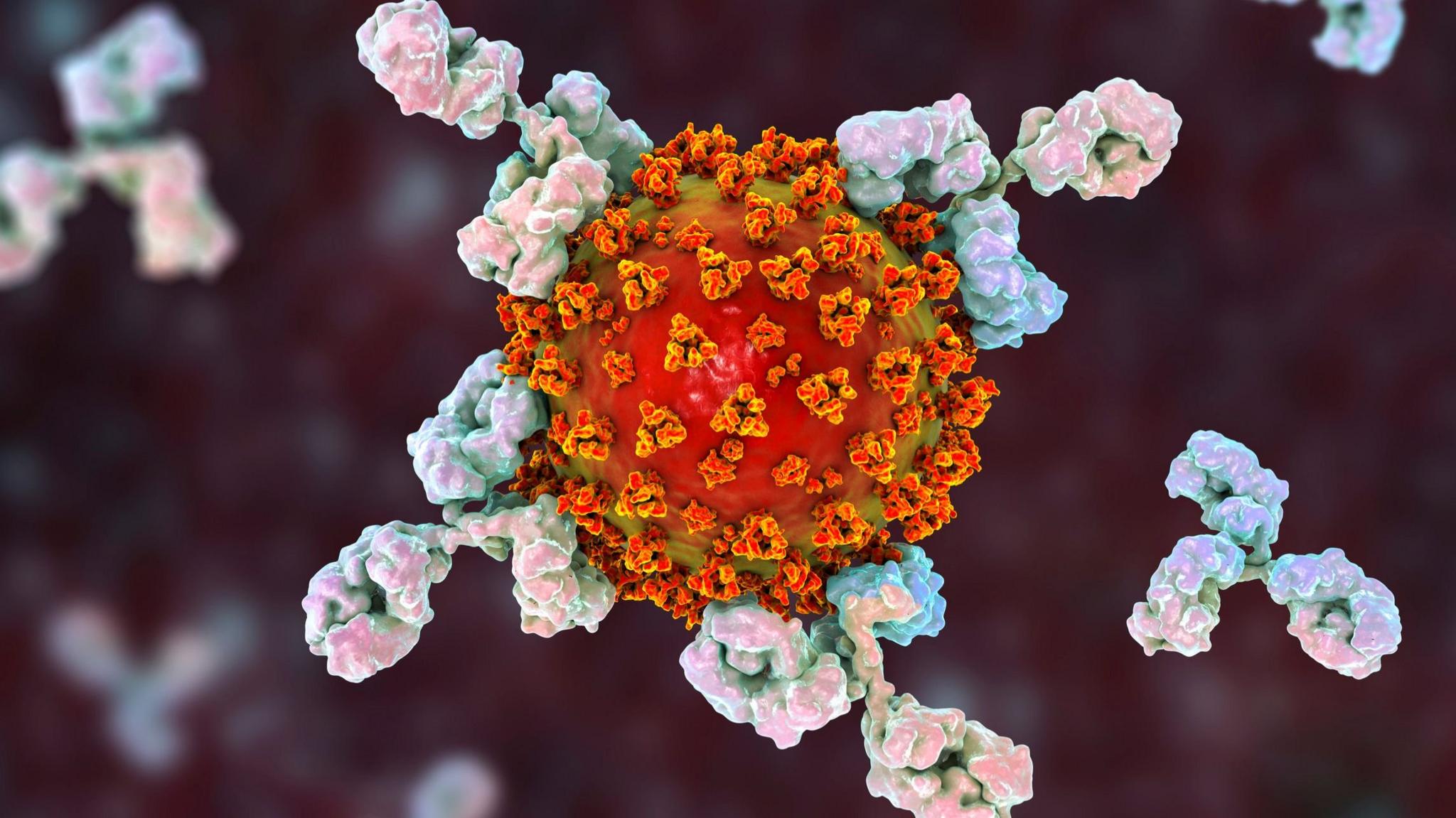
- Published5 September 2020
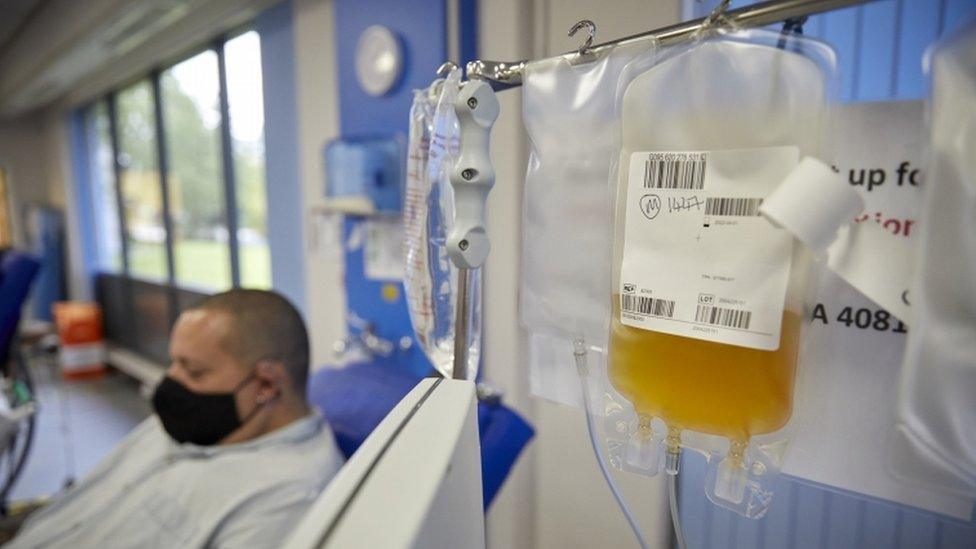
- Published5 September 2020
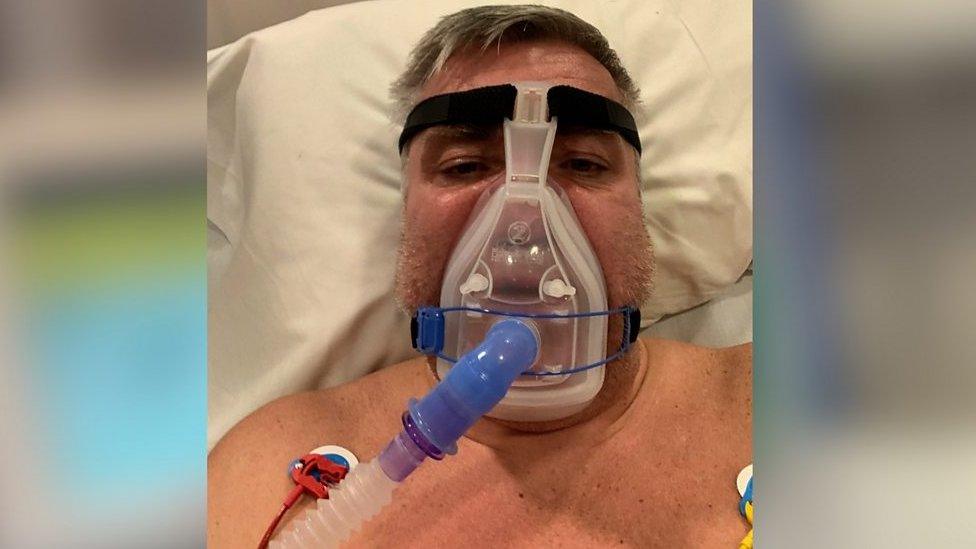
- Published15 March 2022
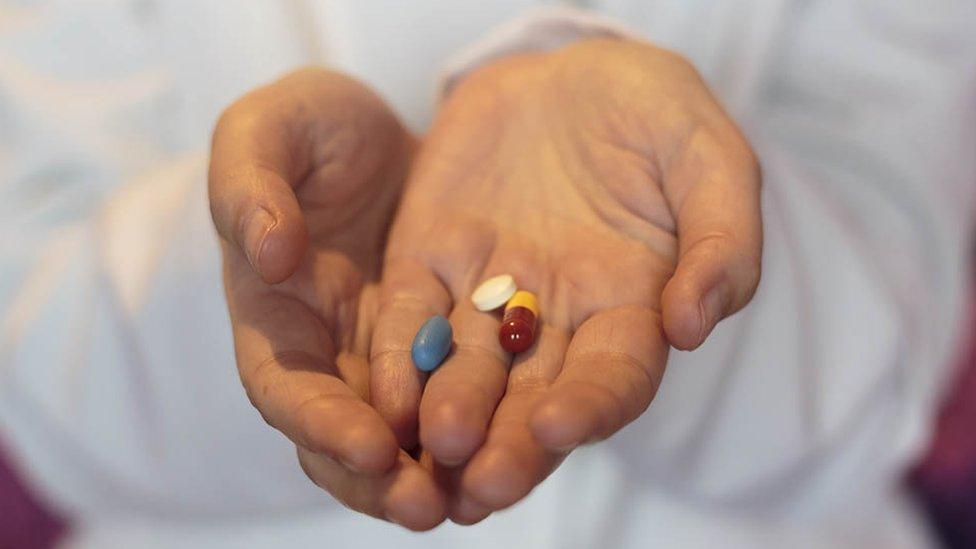
- Published20 April 2020
